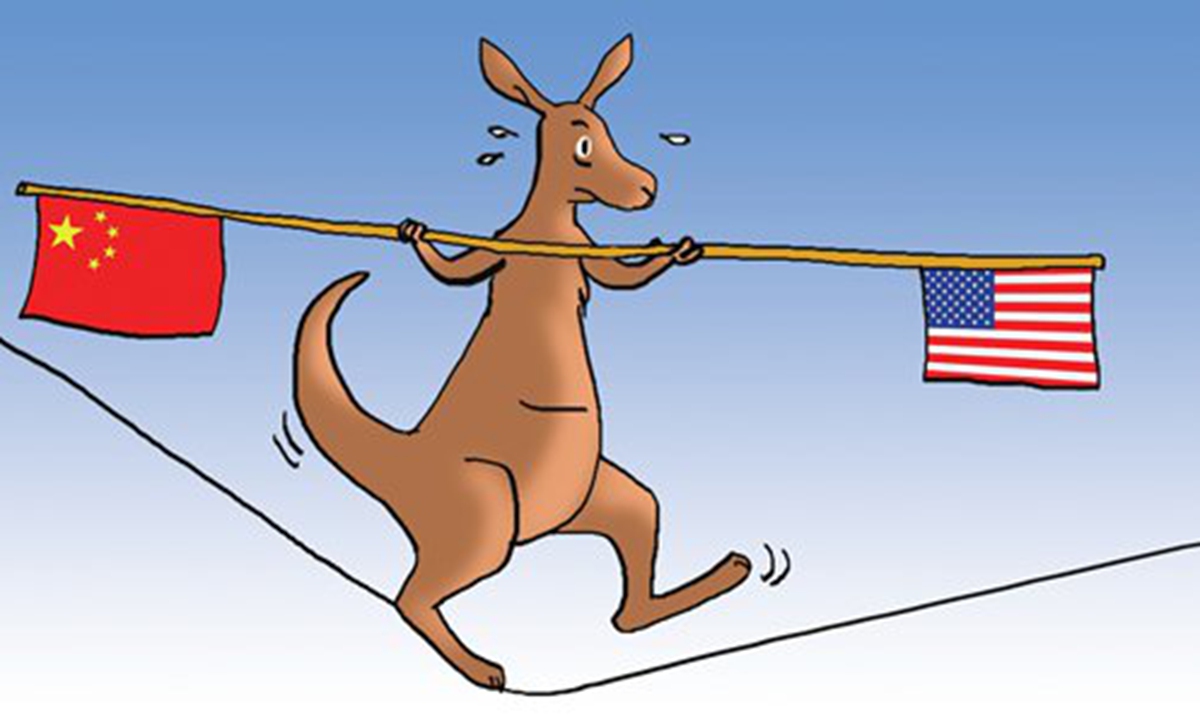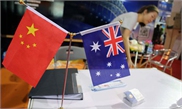
Illustration: Liu Rui/GT
Days after former Australia prime minister Kevin Rudd warned in an article in the journal Foreign Affairs that the risk of a "hot war" between China and the US in the next three months was "especially high," Scott Morrison, the incumbent prime minister, said on Wednesday an armed conflict between the world's two largest powers is no longer inconceivable. Morrison also said building an Indo-Pacific alliance with like-minded nations will be a "critical priority" for his government, warning the pace of militarization in the region was unprecedented.
Although the Morrison administration hinted at the likelihood of a potential China-US hot war, the situation is in fact viewed as an opportunity to promote the building of an Indo-Pacific alliance and to enhance the importance and presence of Australia in the Indo-Pacific region.
How likely will a China-US hot war be? It's a question worth discussing. But a certain thing, as Morrison warned, is that the militarization in the Indo-Pacific region is accelerating. To be precise, the growing militarization in the region has begun since the US adopted the strategy of pivot to Asia. It has been quickened following the 2017 announcement of the US Indo-Pacific Strategy and the US repeated freedom of navigation military operations in the South China Sea. Australia itself has also been a contributing factor to the dangerous trend. Australia announced in early July that it would boost defense spending by 40 percent over the next 10 years and shift its military assets to focus on the Indo-Pacific region.
Australia now vows to prioritize the building of an Indo-Pacific alliance, the core of which is to draw the US in. Therefore, to promote the implementation of the US' Indo-Pacific Strategy is of particular significance to Canberra. Australia is an important pillar of the Indo-Pacific Strategy. To implement the strategy, the US needs to enhance Australia's position in the Indo-Pacific region. This will bring Australia military, economic and political benefits. Besides, in terms of security, Australia needs the support of the US.
Traditional European allies of the US are now gradually becoming alienated from Washington. Therefore Australia considers it a golden opportunity to cement a strong alliance with the US. The intensifying China-US competition also provides Australia a rare chance. The Trump administration is very different from its predecessors who sought engagement with China. The US now emphasizes decoupling with and containment against China. It gives Australia an opportunity to expand its regional clout and enhance its projection of power.
The escalating regional militarization will have an adverse impact on regional stability, peace, economic integration and trade cooperation. It will also exert certain pressures on China. But it needs to be pointed out that the pressure is not necessarily unbearable for China.
Kevin Rudd writes, "The once unthinkable outcome ¬¬- actual armed conflict between the US and China - now appears possible for the first time since the end of the Korean War."
China has never had any intention to provoke a military clash with any country. The US is the side to blame if the two countries really tragically slip into a hot war.
One may ask: Why hasn't Australia, as an ally, persuaded the US to stop escalating regional tensions while signaling alarm? First, it's fair to say Australia is unable to influence the US. Second, Australia is quite an obedient ally of the US. It is more loyal than the UK and less independent than France. It dares not say "no" to the US as Germany did, and even cannot express its displeasure to the US as Japan did.
Although both Rudd and Morrison warned of the risks of a possible China-US hot war, Canberra completely regards regional tensions as a speculative opportunity for its own gains and strategic ambitions. Australia has actually become an accomplice of the US to intensifying regional militarization and tension.
The article was compiled by Global Times reporter Yu Jincui based on an interview with Yu Lei, chief research fellow at the Research Center for Pacific Island Countries, Liaocheng University and a research fellow at the Australian Studies Center at Beijing Foreign Studies University. opinion@globaltimes.com.cn

